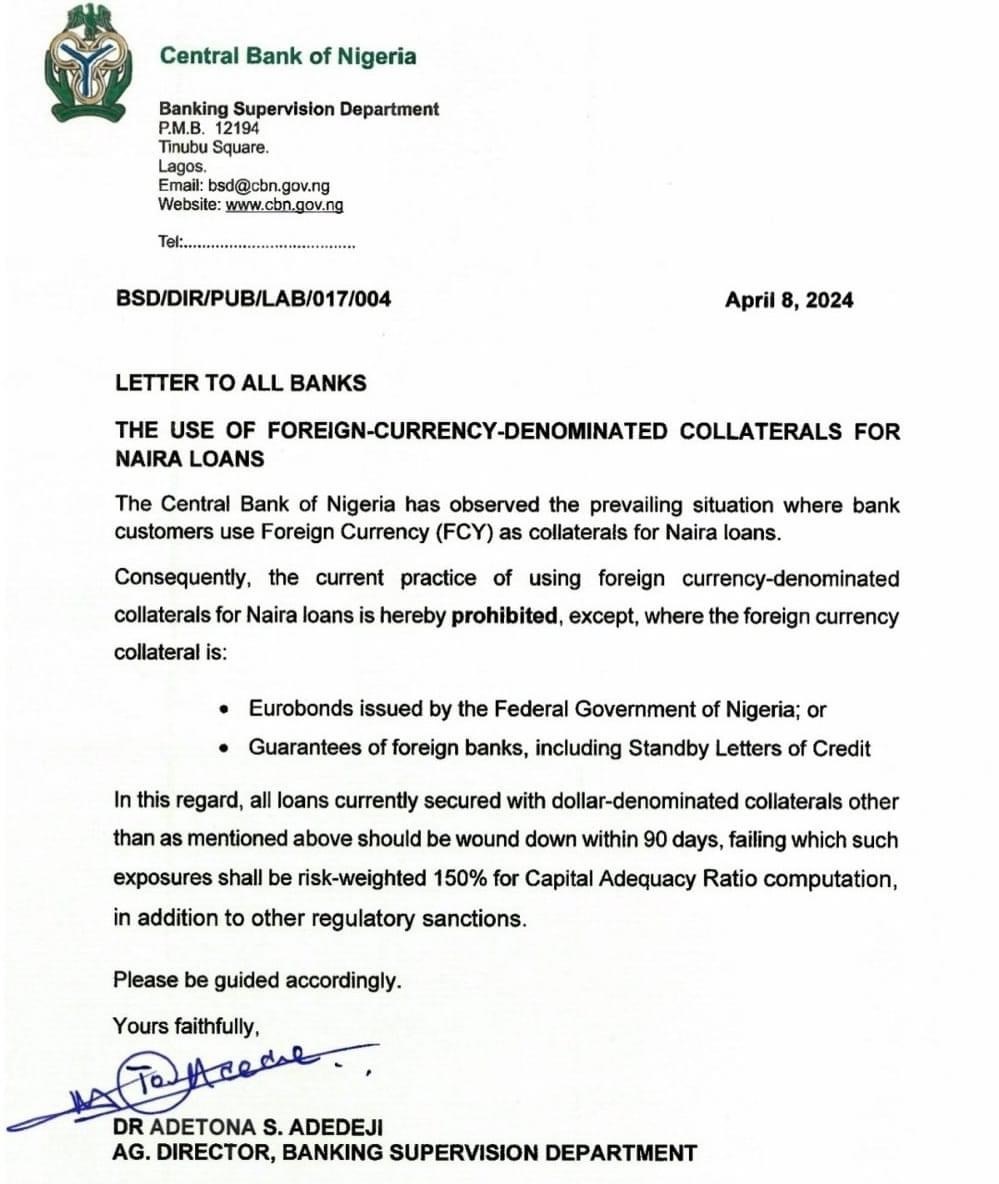The Central Bank of Nigeria (CBN) has banned the use of foreign currency-denominated collaterals for obtaining naira loans, except under specific conditions.
This was conveyed through a circular distributed to all Nigerian banks by Dr Adetona S. Adedeji, the Acting Director of the Banking Supervision Department at the CBN.
The circular noted CBN’s observations of the prevalent use of foreign currency (FCY) as collateral by bank customers seeking naira loans. In the light of these observations, the CBN resolved to prohibit this practice, aiming to stabilise the financial market and ensure the prudent use of foreign currency within the economy.
Exception to the ban
However, the directive comes with notable exceptions. Foreign currency collateral will still be permissible if it is in the form of Eurobonds issued by the Federal Government of Nigeria or guarantees from foreign banks, including Standby Letters of Credit.
This move signifies the CBN’s effort to maintain a balanced approach, recognising the importance of specific international financial instruments and guarantees in the banking sector.
The circular reads:
“The Central Bank of Nigeria has observed the prevailing situation where bank customers use Foreign Currency (FCY) as collaterals for Naira loans.
“Consequently, the current practice of using foreign currency-denominated collaterals for Naira loans is hereby prohibited, except, where the foreign currency collateral is:
“• Eurobonds issued by the Federal Government of Nigeria; or
“• Guarantees of foreign banks, including Standby Letters of Credit”
90-day deadline
The CBN’s directive mandates that all existing loans currently secured with dollar-denominated collaterals, other than those specified, be wound down within a 90-day window.
Banks failing to comply with this requirement will face stringent penalties. The circular specifies that such non-compliant exposures will be subject to a 150% risk weighting for the computation of the capital adequacy ratio, a key measure of a bank’s financial health. This is accompanied by a warning of additional regulatory sanctions, underscoring the seriousness with which the CBN views this policy change.
The circular stated:
“In this regard, all loans currently secured with dollar-denominated collaterals other than as mentioned above should be wound down within 90 days, failing which such exposures shall be risk-weighted 150% for Capital Adequacy Ratio computation, in addition to other regulatory sanctions.”
What You Should Know
This new regulation is expected to have broad implications for the banking sector, affecting loan structuring, risk management practices, and the overall financial stability of the economy.
According to Nairametrics, it reflects the CBN’s proactive stance in curbing potential risks associated with the extensive use of foreign currency collateral, which aims to foster a more stable and sustainable banking environment in Nigeria.
Banks in Nigeria are now faced with the imperative to adjust their lending practices in response to the CBN’s recent directive. The prohibition on using foreign currency-denominated collaterals for naira loans, except under specified conditions, requires banks to revisit their loan security structures. They will likely need to enhance their risk assessment frameworks to accommodate the new regulations. This involves identifying loans that utilise foreign currency collaterals and devising strategies to transition to compliant securities within the 90-day deadline.





